The Silent Sufferers: Recognizing Pain in Horses Before It's Too Late

Recognizing and Managing Hidden Pain in Horses for Optimal Health
Why Do Horses Hide Pain?
Horses are prey animals, and in the wild, showing pain or weakness could make them targets for predators. This instinctual behavior has carried over to domesticated horses, making it difficult for owners to detect when something is wrong. Horses have a remarkable ability to compensate within their bodies to continue moving around even when they are injured or suffering. Recognizing the subtle signs of pain is essential to provide timely and effective care.
Subtle Signs Your Horse Might Be in Pain
Behavioral Changes
- Unusual aggression or irritability
- Withdrawal from social interaction with other horses or humans
- Reluctance to be handled or groomed
Changes in Performance
- Resistance to being saddled or bridled
- Unwillingness to move forward or hesitation to perform usual tasks
- Head tossing and or playing with the tongue
- Sudden changes in gait, such as dragging a toe, a short stride with one or more legs, or stepping out or underneath themselves with one limb when walking in a straight line
Physical Indicators
- Changes in appetite or water consumption
- Unexplained weight loss or poor coat condition
- Changes in posture, such as a hunched back or unusual leg positions
- Changes in how often they roll or lay down and trouble getting up
Vital Signs
- Increased heart rate or respiratory rate
- Elevated temperature
- Changes in gut sounds indicate possible digestive issues
What Steps Should You Take If You Suspect Your Horse Is in Pain?
Conduct a Thorough Examination
Perform a hands-on examination, checking for heat, swelling, or tenderness in the limbs and joints. Pay close attention to the back, neck, and abdomen.
Consult a Veterinarian
If you notice any of the signs mentioned above, it's crucial to consult a veterinarian. They can provide a thorough examination and may recommend diagnostic tests like X-rays or ultrasound to pinpoint the issue.
Implement Pain Management Strategies
Based on the diagnosis, your veterinarian may suggest various pain management strategies, including:
- Medications: Nonsteroidal anti-inflammatory drugs (NSAIDs) may be used to manage pain in horses.
- Physical Therapy: Techniques such as massage, chiropractic care, and acupuncture can provide relief.
- Rest and Rehabilitation: Allowing your horse adequate rest and gradually reintroducing exercise can help them recover.
- Adjustments to diet, turnout, and workload may help with many conditions.
Preventative Measures
- Providing a balanced diet rich in nutrients - Copper is essential for managing inflammation
- Maintaining a regular exercise routine
- Scheduling routine veterinary check-ups and dental care
- For riding horses, regular tack-fitting checks are also necessary
Building a Stronger Bond Through Vigilance
By learning to recognize the subtle signs of pain in horses, you ensure their health and well-being and strengthen the bond between you and your equine friend. Vigilance and proactive care are the cornerstones of a healthy, happy horse. Remember, early detection and intervention are key to preventing minor issues from becoming major problems.
Conclusion
Understanding and identifying how horses hide pain is vital for every horse owner. By being observant and responsive to your horse's needs, you can ensure a higher quality of life for your equine companion. However, don't assume that because they "run around in turnout," they are not hurting. Stay attentive, consult with professionals when in doubt, and prioritize your horse's health to enjoy many happy and healthy years together.
For expert tips on horse care, training, and health, subscribe to our blog and join our community of passionate horse lovers!
Looking for a great product to help manage your horse's discomfort? Shop Here: MED-VET DC-Y (Natural Inflammatory Support)





Leave a comment